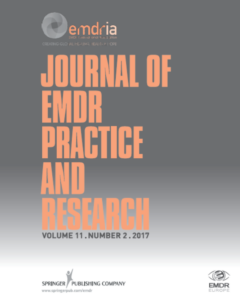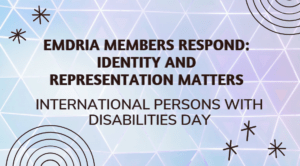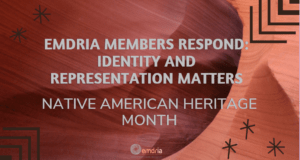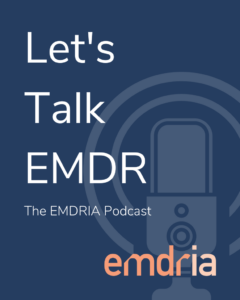Panel Conversation about IDEA (Inclusion, Diversity, Equity, and Access) during the Consultation Process
Panelists respond to questions regarding EMDR Consultants and IDEA (Inclusion, Diversity, Equity, and Access).
Read MoreThe Intersex Experience Brief Considerations (SIG Brief Presentation)
Marie Small discusses her own experience as a neurodiverse, queer, intersex therapist to offer a lens when using EMDR with intersex clients.
Read MoreThe TraumaClinic Model of EMDR Basic Training in Brazil: A Country Case Study for In-Person and Online Training (Journal of EMDR Practice and Research)
This article utilizes a country case study design to describe the implementation of EMDR therapy training in Brazil.
Read MoreMaking Us Whole: How EMDR Assists Members Within The Black Community
EMDRIA member Janell McGruder discusses using EMDR therapy with members of the Black community can help process trauma rooted in racism as well as connect to and celebrate the stories of Black people.
Read MoreEMDRIA Members Respond: Identity and Heritage Representation for Black History Month
EMDRIA Members answer the question “Describe a bit about your experience as a member of the Black or African-American community and how your identity has informed, strengthened, and/or challenged your EMDR practice.”
Read MoreShifting to trauma-informed care in inpatient psychiatry: A case study of an individual with dissociative PTSD undergoing EMDR therapy (Case Reports in Psychiatry)
This case study highlights how trauma-informed care (EMDR therapy) was offered to a patient with dissociative PTSD in an inpatient setting which led to improvement in treatment outcomes.
Read MoreEMDRIA Members Respond: Identity Representation for Persons with Disabilities
EMDRIA members discuss disability and identity and how they inform, strengthen, and or challenge EMDR practice.
Read MoreEMDRIA Members Respond: Identity and Heritage Representation for Native American Heritage Month
EMDRIA Members answer the question “Describe a bit about your experience as a member of the Native/Indigenous community and how your identity has informed, strengthened, and/or challenged your EMDR practice.”
Read MoreAntiracist EMDR Therapy
David Archer, MSW, MFT is devoting his EMDR therapy practice to helping his clients (and the broader EMDR therapy profession) understand what it truly means to be an antiracist EMDR therapist.
Read MoreEMDRIA Members Respond: Identity and Heritage Representation for Hispanic Heritage Month
EMDRIA Members answer the question “Describe a bit about your experience as a member of the Hispanic/Latinx community and how your identity has informed, strengthened, and/or challenged your EMDR practice.”
Read MoreLeadership Series: Culturally Based Trauma and Adversity: Recognition, Definition, and Implications
This course offers the term Culturally Based Trauma & Adversity (CBTA) for trauma based in social, cultural or societal circumstances.
Read MoreBIPOC and Ally Approaches to Trauma-Focused Anti-Oppression Systemic Change
This presentation will demonstrate that when there is full integration of anti-oppressive practice into EMDR therapy, change is possible.
Read More











